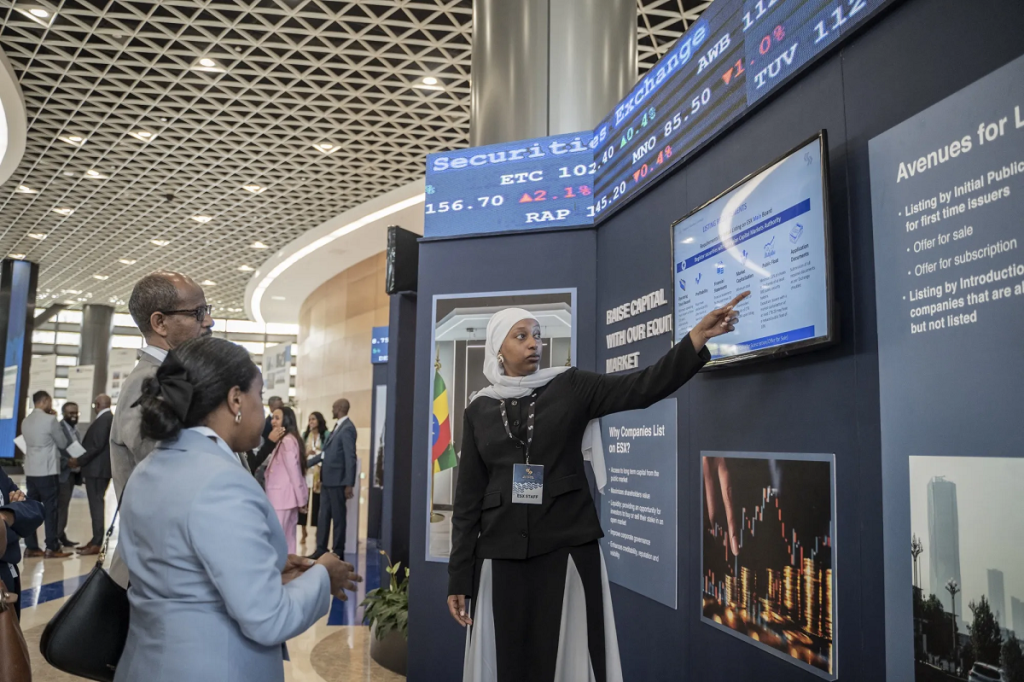Ethiopia took a major step in economic reform on Friday, as Prime Minister Abiy Ahmed ceremonially rang a Wall Street-style bell to mark the launch of the country’s first stock exchange in half a century. This development is part of broader efforts to liberalise Ethiopia’s economy, which has faced numerous challenges in recent years.
The exchange opened with only one company, Wegagen Bank, listed for trading. However, officials have ambitious plans, aiming to eventually include 90 companies and attract four million investors, though no specific timeline has been provided.
In October, shares of the state-owned Ethio Telecom were made available for purchase, but contrary to expectations, the company was not listed on the exchange at its inception.
“This marks a new beginning,” declared Abiy at the launch event. “I urge Ethiopians to embrace risk and seize opportunities.”

Since assuming office in 2018, Abiy has been an outspoken advocate for transitioning Ethiopia’s tightly state-controlled economy toward greater openness and foreign investment. Yet, internal challenges have slowed these efforts. A brutal civil war in the Tigray region from 2020 to 2022 triggered U.S. sanctions, further complicating the reform process.
Ethiopia has lacked a stock exchange since 1974, when Emperor Haile Selassie was overthrown, and the Marxist-inspired Derg regime nationalised much of the economy. In a bid to reverse decades of stagnation, recent reforms have been introduced to attract investment and foster growth.
One key development occurred in December when Ethiopia’s parliament approved legislation allowing foreign banks to establish subsidiaries in the country. However, restrictions remain, limiting foreign ownership to 49% of shares.
Additionally, a significant change to the currency regime was announced in July. The Ethiopian birr, previously pegged to the U.S. dollar, was allowed to float freely. This reform was essential as maintaining the peg had become increasingly unsustainable.
Ethiopia’s decision to implement these reforms unlocked critical financial assistance. A $3.4 billion aid programme from the International Monetary Fund and a $1.5 billion financing plan from the World Bank had been withheld until the changes were enacted.
With a population of approximately 120 million, Ethiopia is Africa’s second-most populous nation. Between 2004 and 2019, its economy experienced impressive annual growth rates, often exceeding 10%. However, progress has slowed in recent years due to internal conflict, the Covid-19 pandemic, and the global economic impacts of the war in Ukraine.
From 2020 to 2023, economic growth averaged 5.9%, a significant decline from earlier years. Meanwhile, inflation surged from 20.4% to 30.2% during the same period, according to World Bank data.
The launch of the stock exchange represents a pivotal moment in Ethiopia’s journey to modernise its economy and reintegrate into global financial systems. However, the path ahead remains fraught with challenges, both domestic and international.


